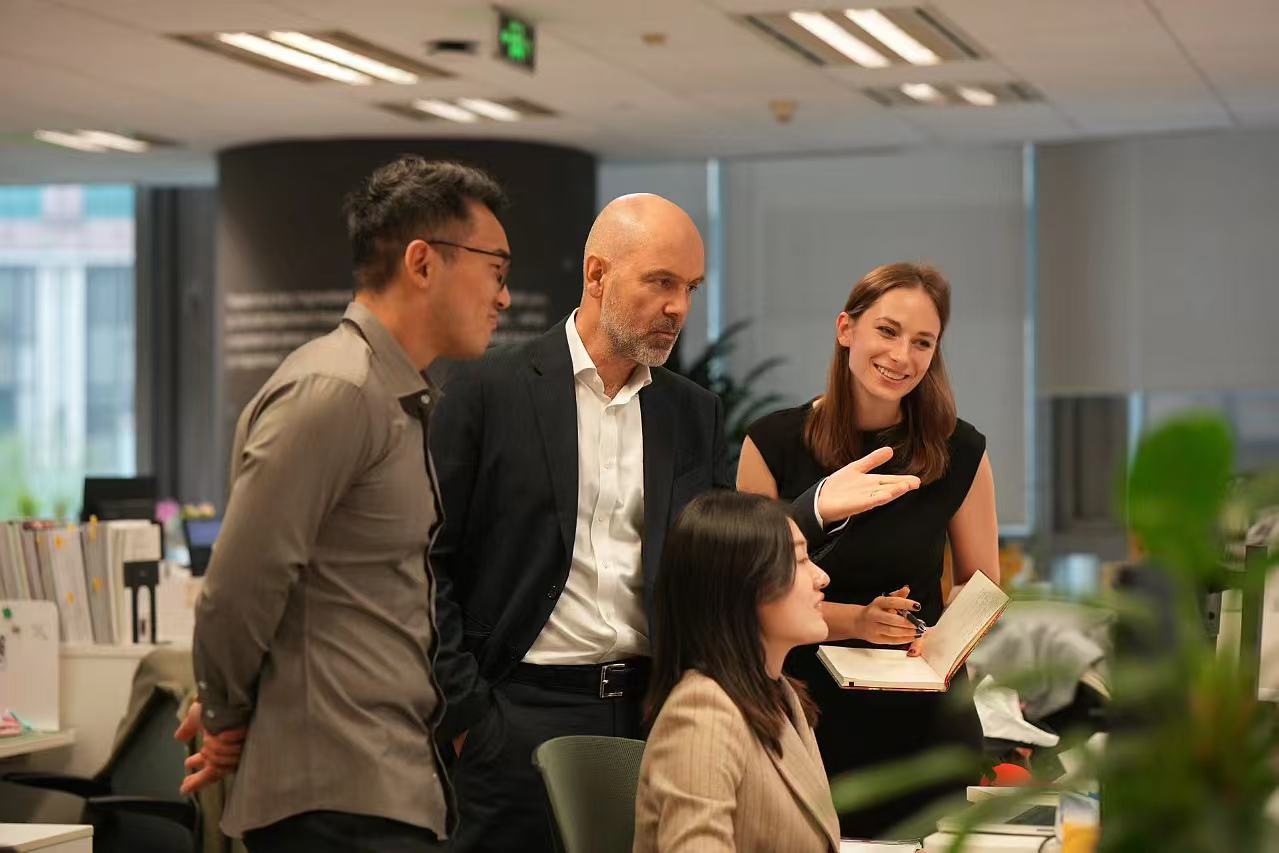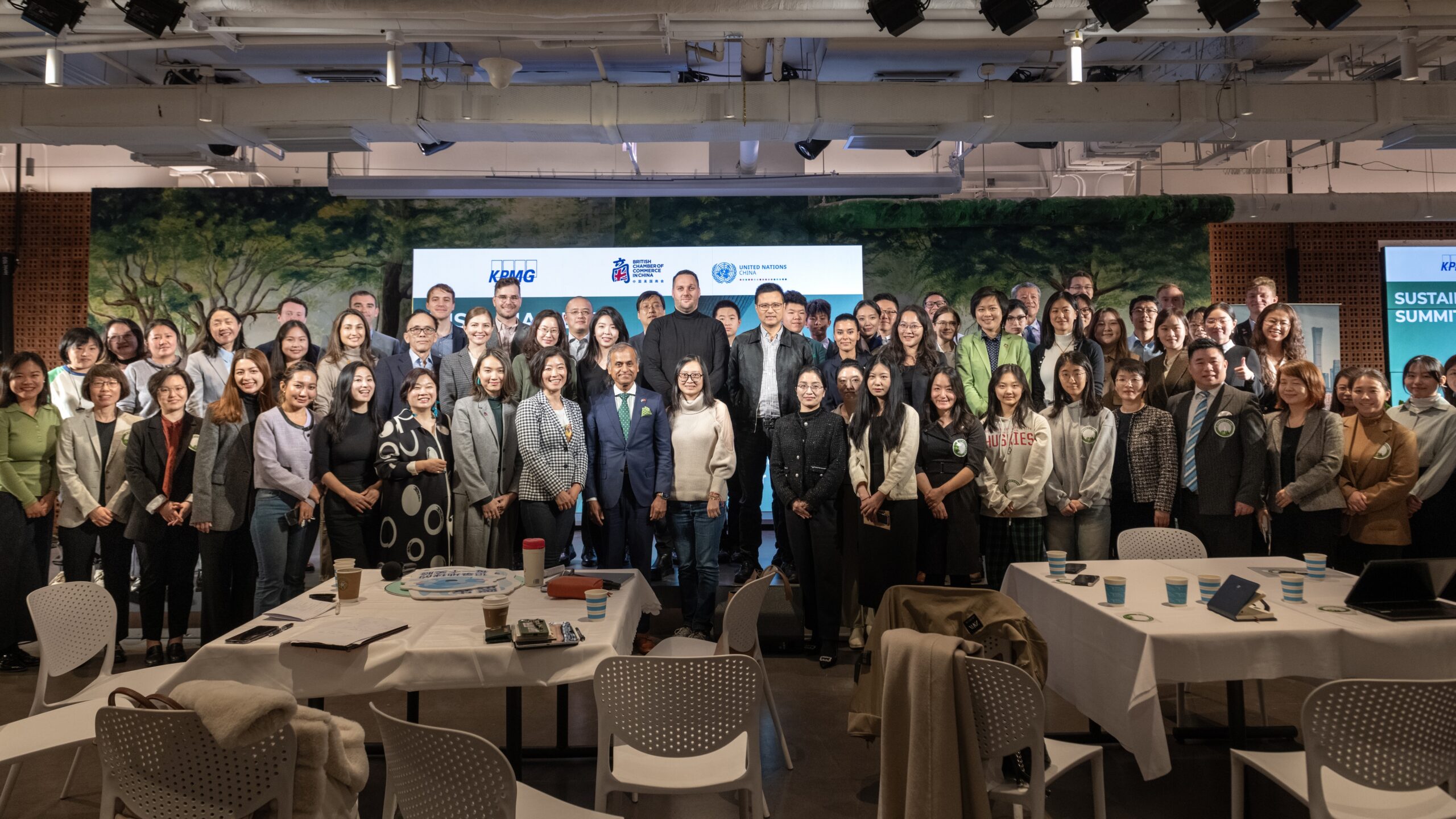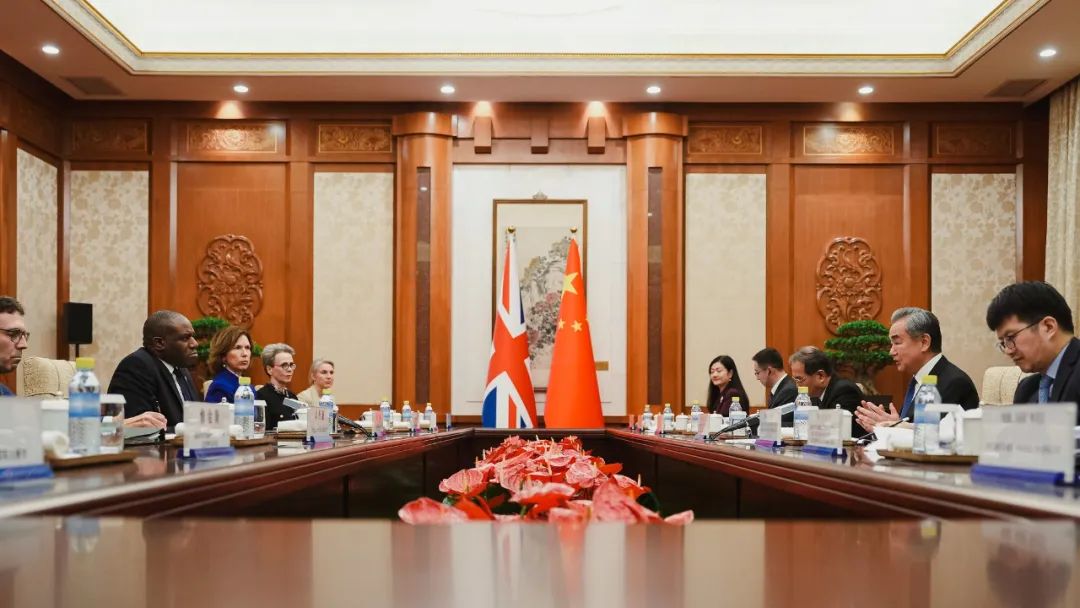Growing up in a sleepy town in the west of England, Chris Torrens didn’t imagine…

The revision of the Chinese Anti-Monopoly Law – can you feel the heat?
The Chinese legislature finally passed the long-awaited revision of the country’s main antitrust statute, the Anti-Monopoly Law (AML). Just a working day after, the Chinese antitrust authority launched a public consultation process to revise six AML implementing rules. The “package” of the revised AML and the draft AML implementing regulations catapult Chinese antitrust law onto the next level – “China antitrust 2.0” if you want. The package will have a profound impact on companies doing business in China.
Introduction
On 24 June 2022, the Standing Committee of China’s National People’s Congress passed the revision of the Anti-Monopoly Law (“AML”). One working day later, on 27 June 2022, the State Administration for Market Regulation (“SAMR”) launched a public consultation process for the revised versions of six AML implementing rules:
- Draft Regulation Prohibiting Monopoly Agreements
- Draft Regulation Prohibiting Conduct Abusing a Dominant Market Position
- Draft Regulation on the Review of Concentration between Business Operators
- Draft Regulation Preventing Conduct Abusing Administrative Powers to Eliminate or Restrict Competition
- Draft Regulation Prohibiting Conduct Abusing Intellectual Property Rights to Eliminate or Restrict Competition
- Draft State Council Regulation on the Notification Thresholds for Concentrations between Business Operators
The revised AML will come into force in less than a month, on 1 August, and the AML implementing regulations can be expected to be enacted and to enter into force at the same time or shortly after.
Together, the “package” of the revised AML and the draft AML implementing regulations catapult Chinese antitrust law onto the next level – “China antitrust 2.0” if you want. The package’s impact on companies doing business in China will be profound.
Main themes
The scope of the AML revision and the amendments to the six AML implementing regulations is very broad, including all four areas of prohibited anti-competitive conduct: monopoly agreements; abuse of a dominant market position; anti-competitive mergers, acquisitions and joint ventures; and “administrative monopoly” conduct.
We see four main themes appear in the revised AML and the AML implementing regulations:
- The status of Chinese antitrust law and policy has been upgraded.
- The AML’s sanctions regime has been tightened very considerably – across the board.
- There are a number of improvements for companies, which can lower their compliance burden. This is either because more “business friendly” rules are enacted, or because prior unclear rules are clarified.
- However, the improvements are never absolute or unconditional. There is always a sort of a “catch” to a seemingly liberalizing move. Clearly, the AML revision is not a radical pro-market breakthrough.
These themes are apparent throughout the text of the revised AML and the proposed AML implementing regulations.
We will discuss the first two themes in this post, and cover the remaining two themes in the next posts, as we will drill down in more detail into the various areas of the AML.
Status upgrade for Chinese antitrust
The wording of the revised AML leaves no doubt that the Chinese antitrust regime has received a significant boost. This can be seen in several places in the revised AML:
- Antitrust work is to be conducted under the leadership of the Communist Party of China (“CCP”). It is very rare that a supposedly “technical law” like the AML contains a reference to the CCP leadership. Of course the CCP is the center of everything in China, so this provision needs to be read as reinforcing the AML’s importance.
- The State is requested to “strengthen the fundamental position of competition policy,” which may be understood as a way to boost the importance of competition policy relative to that of industrial policies.
- The revised AML incorporates the “fair competition review system” (“FCRS”) into the AML framework. The FCRS is an important mechanism obliging in principle all governmental bodies in China to self-screen their own rules and practices for their compatibility with the principle of competition. Since its establishment in 2016, the FCRS ran in parallel with the AML as a separate policy. The AML revision now brings the FCRS under the AML umbrella, and thereby sends the clear signal that governmental bodies need to continue the self-scrutiny.
- A subtle yet important change is made by suggesting that the AML enforcement authority is a standalone authority. This is only half true in reality: strictly speaking, the Anti-Monopoly Bureau (“AMB”) is China’s antitrust authority, and the AMB is a semi-autonomous entity under SAMR, but still within the overall SAMR structure. (For this reason, we will continue to use “SAMR” as the name for the authority in this series of posts.)
In short, the political “upgrade” which the AML has received is visible in the AML text. Antitrust has clearly risen ranks in the pecking order of the Chinese legal and policy framework. The other side of the medal is that there is a risk that antitrust enforcement could become more politicized.
Heavy sanctions
Probably the most distinctive feature of the AML revision is the tightening of the sanctions regime in general. Almost throughout the revised AML, the going gets tougher in terms of sanctions.
A fine increase
Already under the current AML, the fines are very high for anti-competitive agreements and abuse of dominance – 1-10% of the perpetrator’s annual revenues (plus disgorgement of illegal gains, if proven to exist).
In contrast, the fines for failure to file reportable transactions and obstruction by a company of a SAMR investigation are relatively low under the current AML, maximum RMB 500,000 (around USD 75,000) and RMB 1 million (around USD 150,000), respectively.
Now the revised AML increases the fine for failure to file considerably – to RMB 5 million (around USD 750,000) if the transaction does not restrict competition and up to 10% of annual revenues if the transaction does restrict competition.
Similarly, a company can be fined up to 1% of annual revenues if it is found to obstruct a SAMR investigation.
But the elephant in the room – not only for the new sanctioning regime but for the entire AML reform – is Article 63. This provision contains a general fine uplift mechanism for particularly egregious antitrust offenses, without however giving much detail on when the mechanism applies.
Using wording reminiscent of the language used in criminal law, Article 63 states that SAMR can apply a multiplier of 2 to 5 to the fines for anti-competitive agreements, abuse of dominance, anti-competitive mergers, and obstruction of the investigation “if the circumstances are especially serious, the impact is especially adverse, or the consequences are especially serious.” This effectively means that the maximum fine for a substantive antitrust offense can be up to 50% of annual revenues and up to 5% of annual revenues for obstruction of the investigation.
From this description one can easily see that this provision can have a big impact on companies – clearly, a fine of 50% of annual revenues could bankrupt most companies. In addition, the wording of the provision is very vague. Even if SAMR will not use this provision much going forward, it will always loom over the heads of companies involved in an antitrust procedure. The net effect of the provision may be to significantly strengthen SAMR’s hand in any investigation.
New sanctions beyond corporate fines
The revised AML creates a number of additional new sanctions which go beyond the standard corporate fine regime:
- The revised AML provides for fines of up to RMB 1 million (around USD 150,000) on the infringing company’s legal representative, major responsible person, or the direct responsible person if they are found to have personal responsibility for the conclusion of an anti-competitive agreement. However, neither the revised AML nor the Agreements Regulation provide further guidance on when the employees have personal responsibility – for example, it is not clear whether the above-mentioned employees need to have been involved or at least have known about the illegal conduct, or if a simple omission (by negligence) for example can be enough. In fact, it is not even fully clear who the “major responsible persons” and the “direct responsible persons” are.
- On their face, the personal sanctions apply to any kind of anti-competitive agreements, potentially covering hardcore cartels and resale price maintenance as much as other types of anti-competitive horizontal agreements (such as R&D cooperation etc.).
- The impact of this provision will likely give companies’ internal compliance efforts a further boost, since business people now face personal consequences.
- As a separate development, the revised AML also empowers SAMR to request meetings with a company’s legal representative or “responsible person” to discuss potential rectification measures. It is not clear how this provision relates to the general principle that a company can choose its representative/interlocutor with government. Hopefully this rule does not mean that SAMR would call in the legal representative or manager in charge into one-to-one meetings, which could put undue pressure on the respective persons.
- The revised AML mandates registration in China’s social credit system of any SAMR decision finding companies to have breached the AML as well as the publication of that registration decision. Although the social credit system is still in the process of being built up, many companies are concerned that minus points in their social credit ranking could have an important negative impact on their ability to do business in China.
- According to a new provision, criminal liability is to be sought if a violation of the AML constitutes a crime. This provision works as a general reference, and does not create new law. At the moment, certain types of bid rigging are the only substantive antitrust offenses prohibited under the Criminal Law. That said, however, the fact that this provision was newly added into the revised AML – together with other developments such as criminal law-type of language in Article 63 and the new provision on individual liability of employees for anti-competitive agreements – may indicate that the direction of antitrust law in China may longer term be towards criminalization of certain antitrust offenses.
In short, the revised AML has very significantly beefed up the sanctions regime, both by way of increasing the fine levels of existing sanctions and establishing new types of sanctions as compared to the current AML. Going forward, an antitrust offense may become much more costly for businesses.
The AML revision and the issuance of the six draft regulations represent the biggest change in the Chinese antitrust world since the AML came into force in August 2008. We genuinely have “China antitrust 2.0” after 14 years of enforcement of the AML.
Although the plan for the AML revision was to make a “small amendment,” the impact on businesses will be significant.
As discussed above, the revised AML has given the Chinese antitrust regime an upgrade. Stronger and higher political support, but perhaps also an increased politicization, are the likely outcome.
The strengthening of the sanctions regime will require the full attention of companies doing business in China. Alongside the strong arsenal of sanctions at its disposal, the revised AML and the draft AML implementing regulations give SAMR procedural tools which will further boost its investigative powers. For example, SAMR is empowered to request meetings with a company’s legal representative or “responsible person” to discuss rectification measures.
All in all, SAMR’s position in investigations against companies will be significantly strengthened. Therefore, the best course of action for companies will be to enhance compliance efforts to avoid ever being drawn into a SAMR investigation.
Companies should:
- update antirust compliance materials to take into account the AML reform
- roll out new antitrust trainings for business teams
- analyze if further compliance measures need to be taken and, if so, aside the corresponding budget.
Our next posts will analyze in more detail the substantive antitrust developments, covering the novelties in the areas of anti-competitive agreements, merger control, and all other fields.
If you would like to obtain a courtesy copy of our inhouse English/Chinese translation of the revised AML, please contact us.
Authored by Adrian Emch, Qing Lyu, and Jingwen Hou.
Full article can be found here on Hogan Lovell’s website.

Hogan Lovells understands and works with clients to solve the toughest legal issues in major industries and commercial centres around the world. Our 2,600+ lawyers on six continents provide practical legal solutions wherever clients are working in the world. Whether they are expanding into new markets, considering capital from new sources, or dealing with increasingly complex regulation or disputes, Hogan Lovells can help. Whether change brings opportunity, risk, or disruption, be ready by working with Hogan Lovells.
As one of the first international law firms on the ground in Greater China, Hogan Lovells has one of the largest and leading legal practices in the country. Our multilingual and multinational team of approximately 130 lawyers and fee-earners in Greater China acts as a true partner to our clients, teaming with them to set them up for successful business operations within the country’s unique business environment. With an understanding of complicated, regulated industries, we help our clients identify and anticipate regulatory changes, market dynamics, and trends that can impact business operations.



